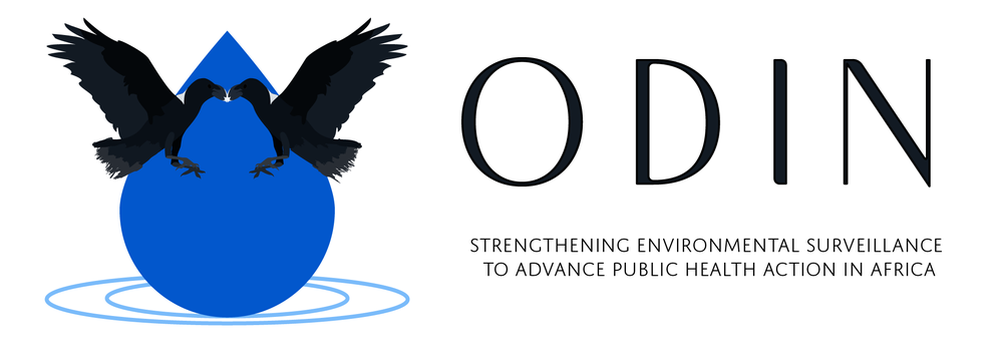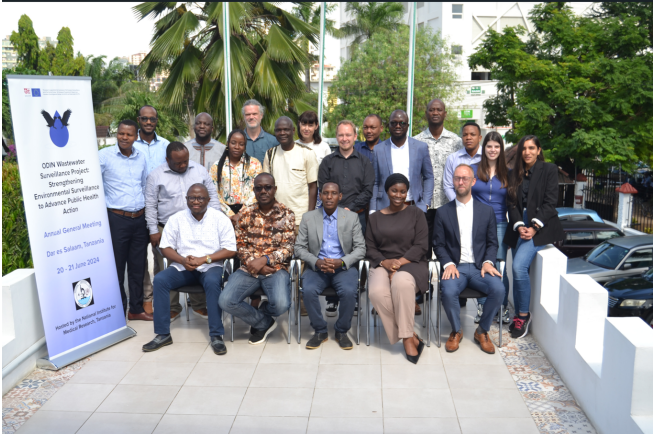

The ODIN project’s Annual General Meeting (AGM) focused on enhancing environmental surveillance to advance public health initiatives, successfully convened in Dar es Salaam. Co-funded by the EU Horizon Programme and hosted by the National Institute for Medical Research (NIMR), the hybrid event brought together stakeholders from several African countries and Europe to assess the progress and challenges faced by the project.
Study Sites Progress
Principal investigators from the three key study sites—Democratic Republic of Congo (DRC), Tanzania, and Burkina Faso—provided updates. Professor Vivi Maketa from DRC highlighted her collaboration with the National Biomedical Research Institute (INRB), the training of personnel, and ethical approvals secured for project implementation. In Tanzania, Dr. Vito Baraka described advancements in wastewater surveillance and the creation of stakeholder networks. Burkina Faso's Dr. Marc Christian Tahita reported strong collaborations with national authorities and ministries and outlined the preparedness of labs and sampling sites.
Challenges
Despite significant progress, challenges persist. Delays in pilot sample collection, issues with the availability of laboratory reagents, and the high costs of sequencing were noted as hurdles. Sustainability of the capacities built in the participating countries beyond the project's end also remains a critical point of discussion.
Work Package Highlights
Each of the project’s work packages (WP) reported on significant developments:
-
WP1 & WP8 (Project Management and Coordination): Led by Prof. Rolf Lood, these packages focus on managing the project and building strategic partnerships. WP1 has succeeded in enrolling key advisors, finalizing opinion papers for publication, and pursuing additional funding sources. WP8, which manages the GenEpi platform for reagents and data management, is close to finalizing key agreements.
-
WP2 (Surveillance): Led by Prof. TarjaPitkänen, WP2 achieved significant milestones, including the completion of a stakeholder workshop and submission of survey results to a peer-reviewed journal. Key sampling protocols targeting Salmonella typhi, Vibrio cholerae, and antibiotic-resistant bacteria are being rolled out, with continuous sampling planned for the autumn of 2024.
-
WP3 (Mobile Labs): Prof. Adriana Krolicka’s team in WP3 has made progress in training mobile lab workers and developing protocols for fieldwork. Sampling has already been conducted in Dar es Salaam, with two quality control kits being evaluated to enhance reliability during sampling.
-
WP4 (Data Sharing and Storage): Led by Dr. Sakina Bombaywala, WP4 raised critical discussions on data sharing infrastructure. The team is evaluating automated processes for uploading data to public databases and is debating server location, whether in Africa or Europe, to ensure efficient access and long-term storage.
-
WP5 (Risk Assessments and Intervention): Coordinated by Dr. Marc Christian Tahita, WP5 integrates with WP2 and WP3 to ensure that data from environmental and clinical samples informs public health interventions. Work is underway to develop Water Safety and Sanitation Plans aligned with WHO guidelines, with efforts to assess economic impacts and health outcomes.
-
WP6 (Capacity Building): Led by Dr. Vito Baraka, WP6 has focused on creating training programs for local scientists and improving regional collaborations. A central hub was launched in early 2024, which has already attracted significant traffic from African countries, signalling effective knowledge dissemination.
-
WP7 (Communication and Dissemination): WP7, coordinated byThe Global Health Network, emphasized the importance of outreach and communication. The team has developed a multi-platform communication strategy, including Teams groups, LinkedIn, and newsletters. The launch of a dedicated data-sharing hub and an upcoming publication tracker were highlighted as key tools for ensuring transparency and accessibility of project findings.
Keynote Addresses and Discussions
Keynote speakers included Andreas Berglöf from WaterAid Sweden, who highlighted the need for improved water, sanitation, and hygiene (WASH) infrastructure globally, particularly in regions where inadequate sanitation contributes to high mortality rates among children. Prof. Gerald Misinzo from Africa SACIDS proposed the "7-1-7" strategy to improve pandemic preparedness, advocating for early detection and rapid response to control outbreaks within 15 days.
In a panel discussion, experts debated the importance of tailoring scientific communication for various stakeholders, with an emphasis on bridging gaps between research, policy, and public health actions.
Conclusion
The AGM concluded with a call for strengthened collaborations, emphasizing the need for long-term sustainability of the ODIN project’s efforts in environmental surveillance. The importance of integrating project findings into national public health systems was underscored, with attention turning toward securing additional funding and building capacity for future public health challenges.
Also By
- 1er webinaire ODIN : le consortium partage ses connaissances sur les stratégies d'innovation, de résilience et de durabilité
- 1st ODIN Webinar: The Consortium Shares Insights on Innovation, Resilience, and Sustainability Strategies
- Projet ODIN de Surveillance des eaux usées : Campagne d'échantillonnage terminée
Please Sign in (or Register) to view further.